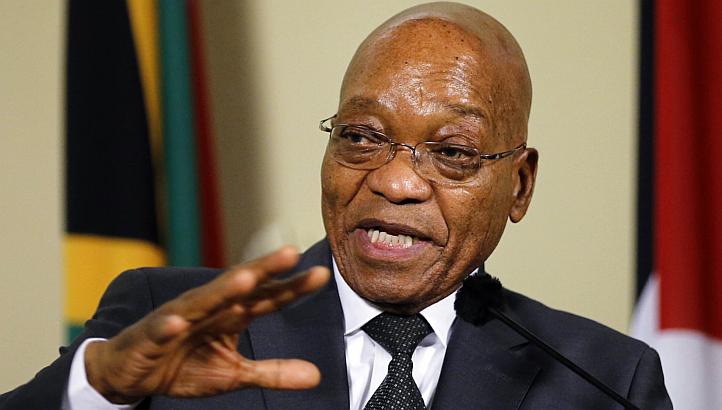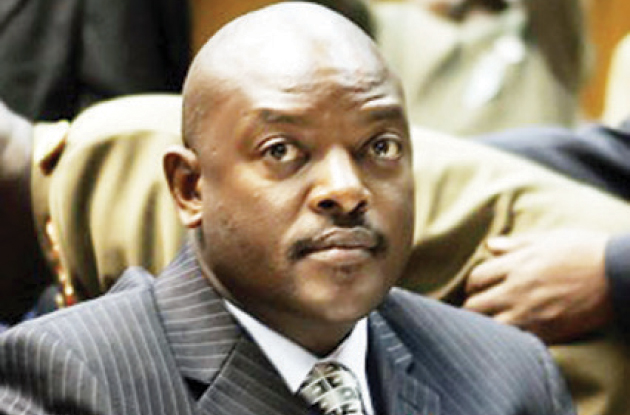ANC rallies round Zuma

JOHANNESBURG – South Africa’s ruling ANC rallied round President Jacob Zuma on Tuesday, rejecting calls for him to stand down after he rocked financial markets last week by appointing an unknown backbencher as finance minister.
Zuma appointed David van Rooyen, a former mayor, to replace the widely respected Nhlanhla Nene last Wednesday, a move that sparked a selling frenzy in the rand, bonds and stock market. But he changed his mind late on Sunday and reappointed former finance minister Pravin Gordhan to the post he held from 2009 to 2014.
The dramatic U-turn caused a relief rally in South African assets. But it also fuelled speculation that the ruling party might make the 73-year-old relinquish the reins of power because of the damage done to Africa’s most advanced economy.
However, spokesman Zizi Kodwa said top officials in the African National Congress (ANC), Nelson Mandela’s erstwhile liberation movement that has ruled since the end of apartheid in 1994, had not contemplated such drastic action.
“I can confirm that there was no discussion of recalling the president,” he told a news conference.
Ratings agency Moody’s cut its outlook on South Africa’s sovereign credit rating to negative from stable, citing the increased probability that economic growth will remain low for a prolonged period of time.
It also said there was a growing risk of fiscal slippage from both slower growth and increasing political pressure in the country.
The Nene fiasco came as the ANC prepared for May local government elections in which it is likely to face stiff competition from the opposition Democratic Alliance and the leftist Economic Freedom Fighters, especially in urban areas.
ANC deputy secretary-general Jessie Duarte said Zuma had decided to change van Rooyen’s appointment on Sunday afternoon after a 70-minute meeting with top party officials, including deputy president Cyril Ramaphosa.
Meanwhile, in one of South Africa’s stranger public holiday commemorations yesterday, thousands gathered in various cities to participate in #ZumaMustFall marches, while President Zuma himself called for people not to exaggerate the country’s problems for fear of being considered “funny”.
“We exaggerate our problems and make people think that South Africans are funny people; whilst in reality people envy to be South Africans,” he said during an address celebrating Reconciliation Day at the Nelson Mandela Metropolitan University in Port Elizabeth.
Zuma faced a backlash after he announced last week that he was replacing Finance Minister Nhlanhla Nene with ANC MP Des van Rooyen. There was a public outcry and calls for Zuma to be recalled over the move, which saw the rand reach record lows. Four days after the announcement Zuma backtracked, replacing Van Rooyen with Pravin Gordhan as finance minister, which saw the rand recover somewhat.
Yesterday, towards the end of a length speech delivered to a relatively sparse crowd — Zuma seemed to deviate from his notes, in order to urge religious, political and traditional organisations to “educate the society” to understand the difference between the apartheid government and the democratic version over which he currently ruled.
“The kind of authority we have now is not the authority of the oppressor; it is our authority, our own government.”
As such, he said, while during apartheid, part of the struggle was to disrupt the government – “making apartheid unworkable – “we can’t repeat the same methods that we used then, to our own government”.
He said that speaking about this difference “will talk to our minds, our hearts our souls of whether South Africa is doing right or not.”
While some were concerned that the march seemed to be dominated by the middle class – a perception perhaps enhanced by protesters like an elderly couple who painted their #zumamustfall on a purple yoga mat – others felt that it had been a day in which citizens united to declare that, as Zwelinzima Vavi put it, they were “gatvol” with the current president.
“Zuma, you have failed the poor. You have failed the working class. You have failed the South Africans who have the brains to think independently,” the former Cosatu leader told the Johannesburg crowd.
Asked who he would like to replace Zuma, one protester in Pretoria declared a preference for “Cyril. Or Vusi [sic] Maimane”, – clearly, just a slip of the tongue away from Democratic Alliance leader Mmusi Maimane’s name.
Reconciliation Day was made a public holiday following the first democratic election in South Africa in 1994.
December 16 marks both the Battle of Blood River in 1838 between Zulu and Voortrekker groupings, as well as the establishment of the ANC’s armed wing Umkhonto we Sizwe (MK) in 1961. — AFP











Comments